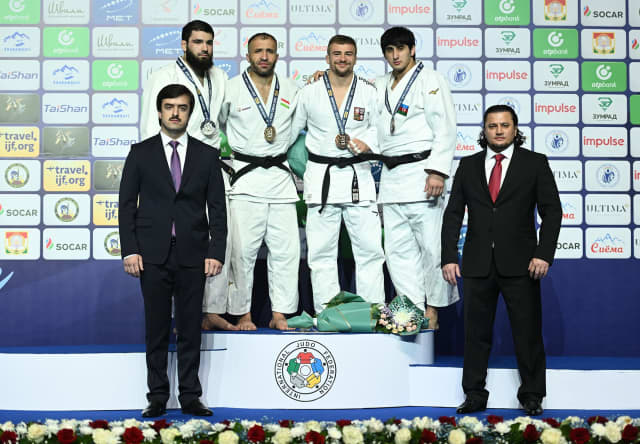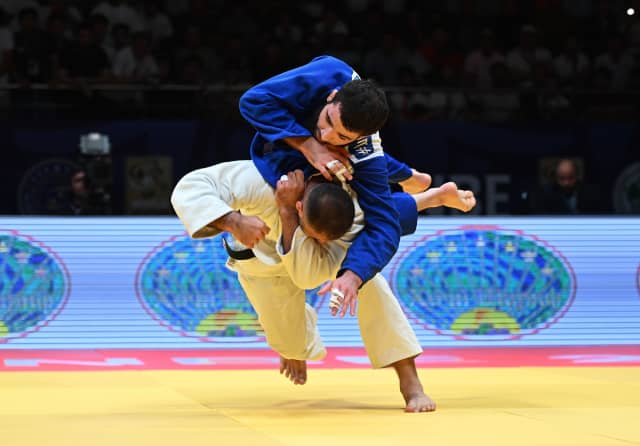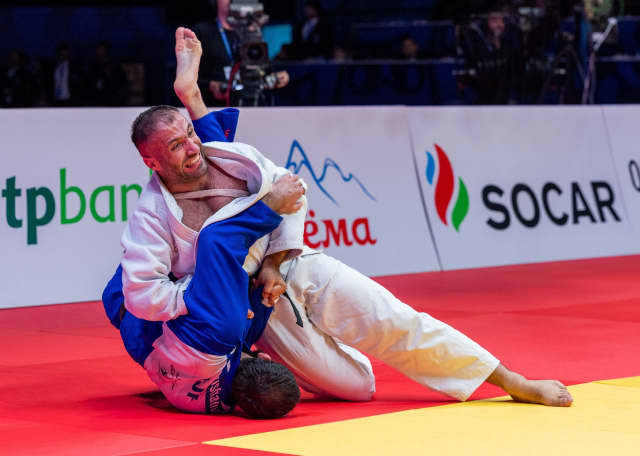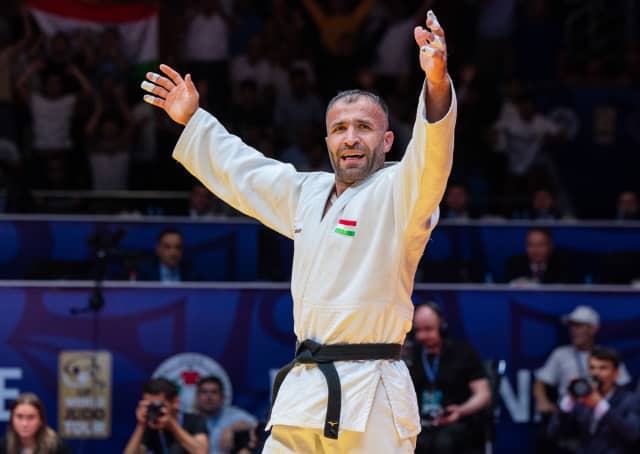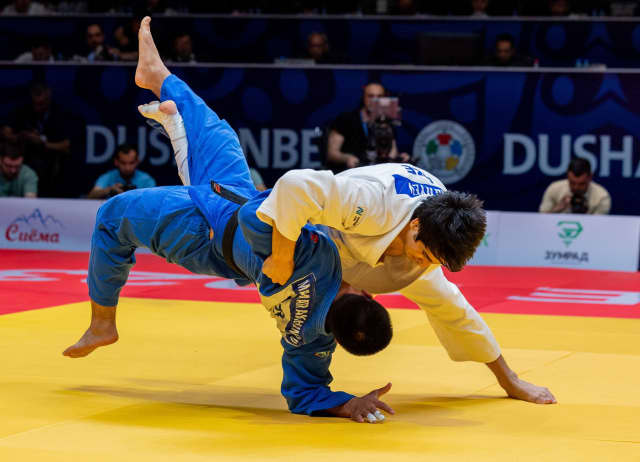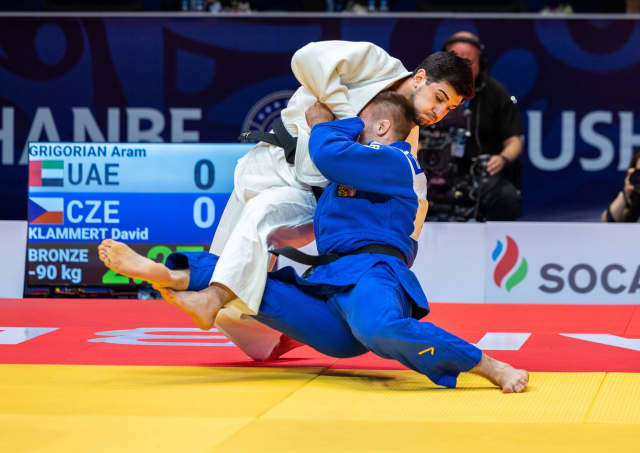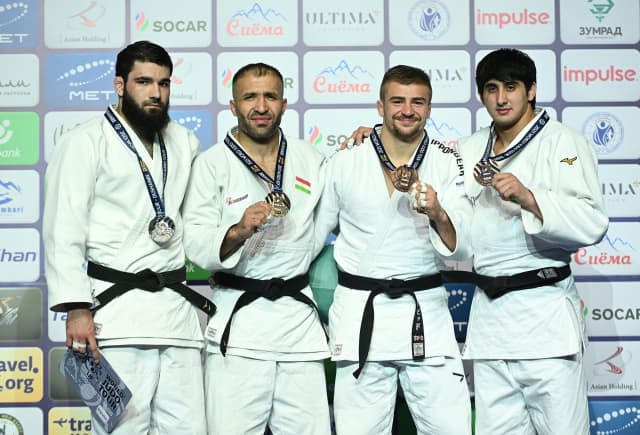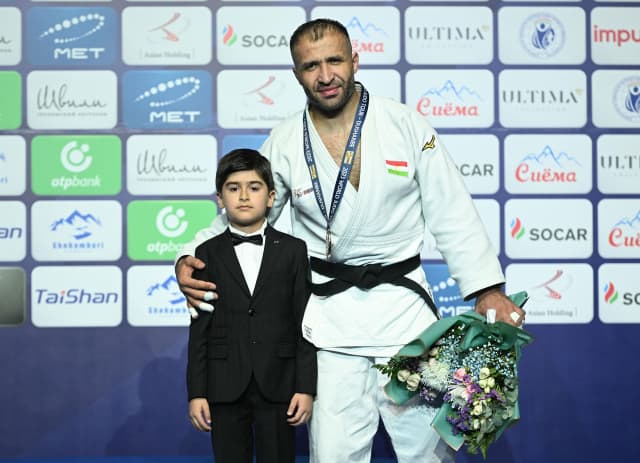Seventh at the Jerusalem Masters and seventh in Tashkent this season, Ustopiriyon was obviously waiting to be on home soil to find his way back to the podium, he who already has 10 medals on the World Judo Tour.
Opposite him to compete for gold, was Eldar Allakhverdiev (AIN). The first shido was given to Allakhverdiev for a false attack. Every single move of Ustopiriyon would initiate hoorahs from the audience, who came in even bigger numbers than on day two of the event. The second penalty was awarded to the local judoka. It is always amazing to see how a contest can go by so fast when you have such an atmosphere in the venue. There were already only 37 seconds left and one shido apiece and then golden score; it all seemed to come at a pace. After 33 seconds, the second penalty was given to Allakhverdiev.
Ustopiriyon then had to escape, using his acrobatic skills, from a very dangerous situation. In doing so, he touched the leg of his opponent, receiving a second penalty. During the next exchange, Eldar Allakhverdiev dropped to his knees, while Komronshokh Ustopiriyon remained standing, tachi-waza was still totally valid. The Tajik judoka didn't let the opportunity vanish and launched an uchi-mata for waza-ari, immediately followed by a noisy ovation from the public. It was a third gold for Tajikistan.
The first bronze medal went to the winner of the contest between Aram Grigorian (UAE) and David Klammert (CZE). The match was tight. With less than one minute to go, Klammert took the lead with a waza-ari scored on the edge of the competition area after an action that remained unclear until the landing of Grigorian on his side. With 21 seconds left, David Klammert concluded with a shime-waza, this time for ippon.
Eljan Hajiyev (AZE) and Jakhongir Mamatrakhimov (UZB), world junior champion, battled for the second bronze medal. The public came to watch great judo. Eljan Hajiyev delivered a beautiful moment of it, with a powerful o-soto-gari for ippon.
